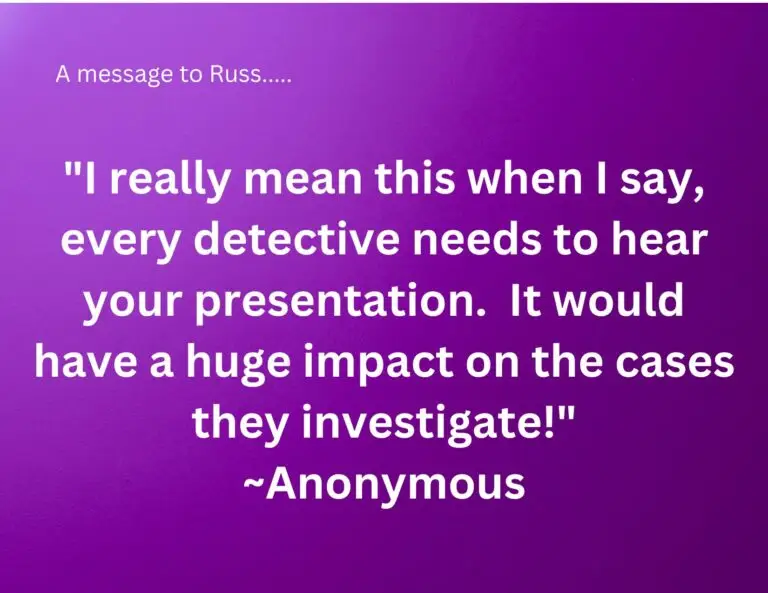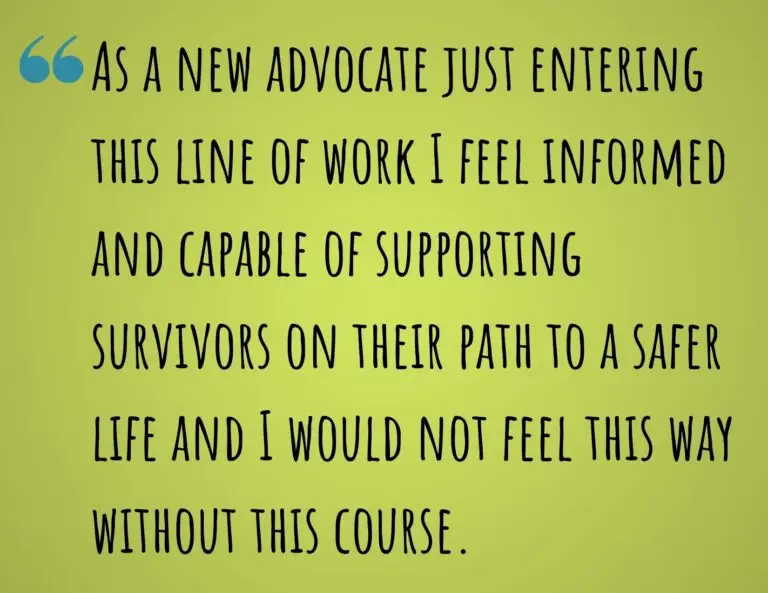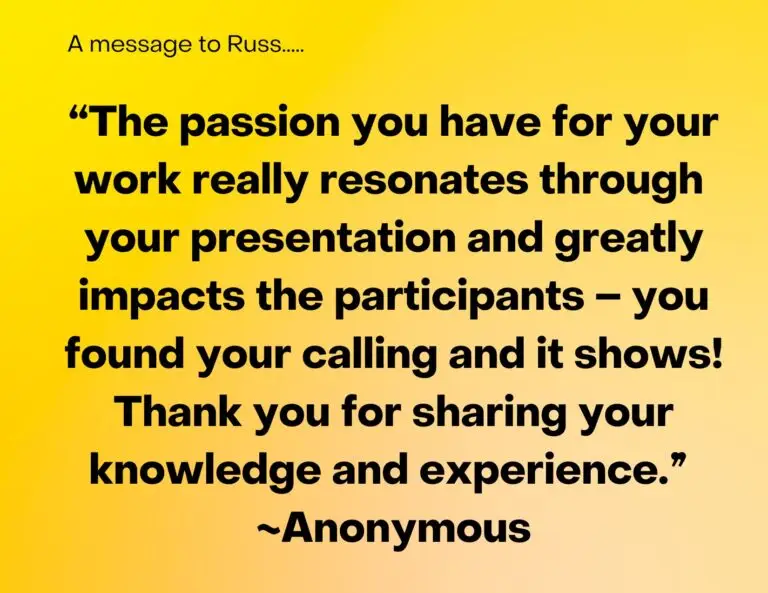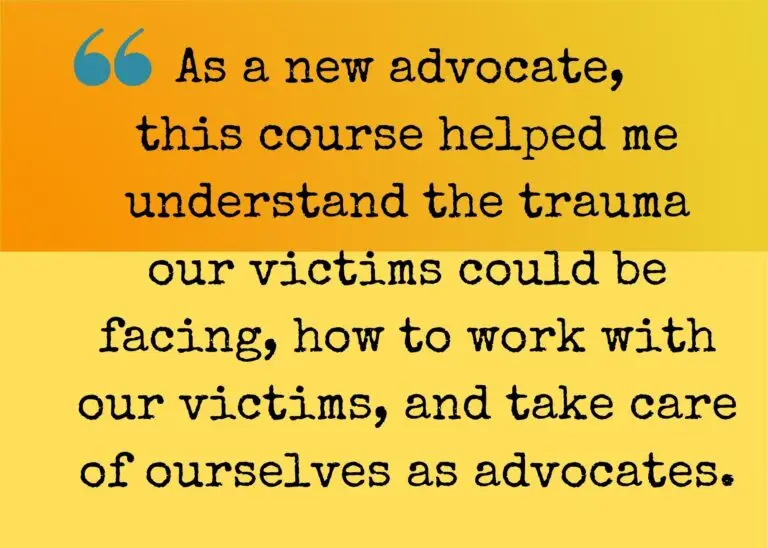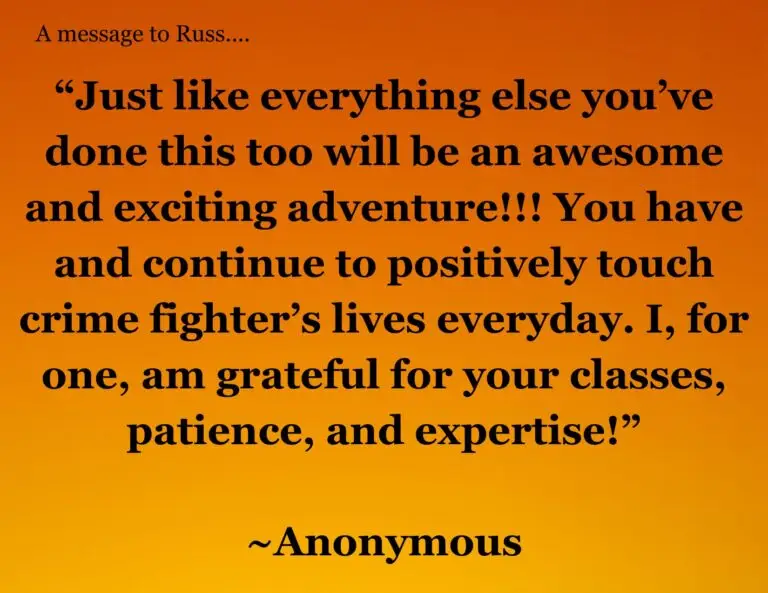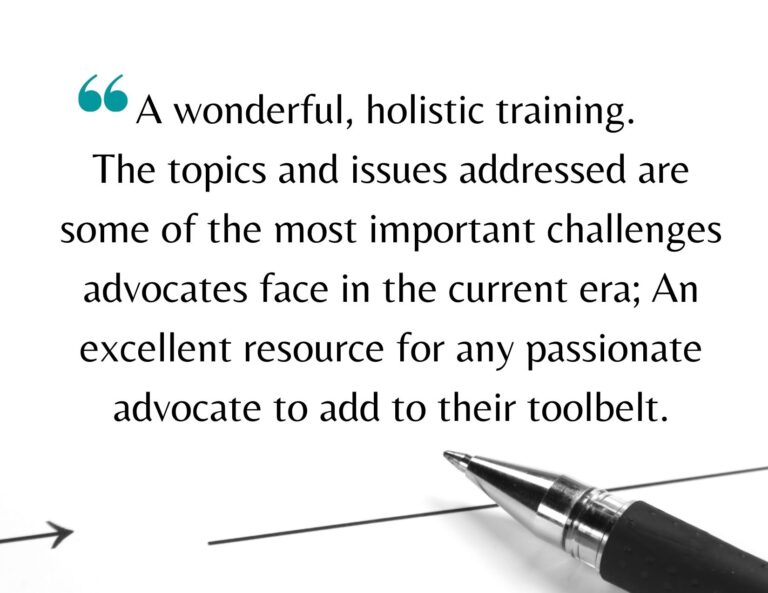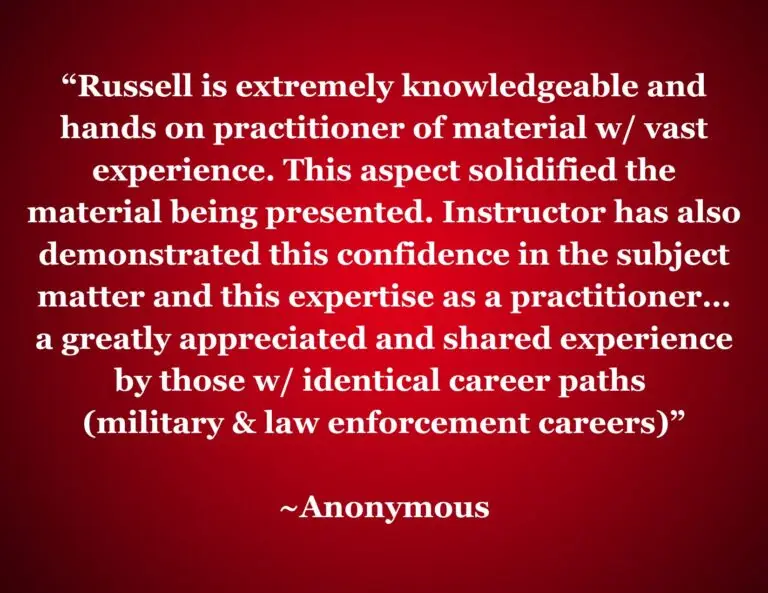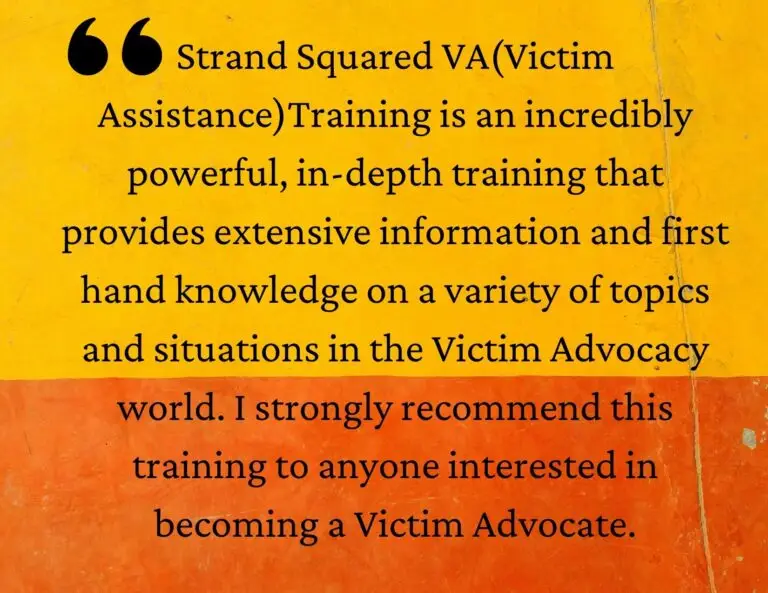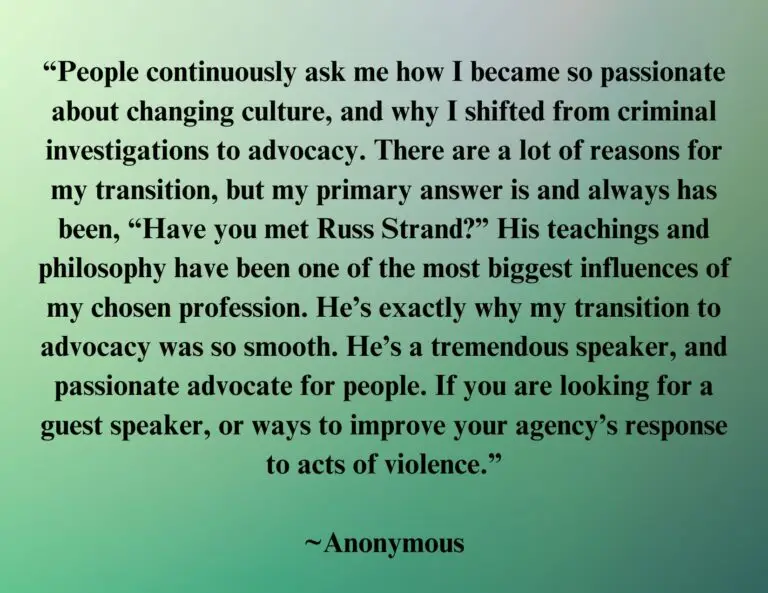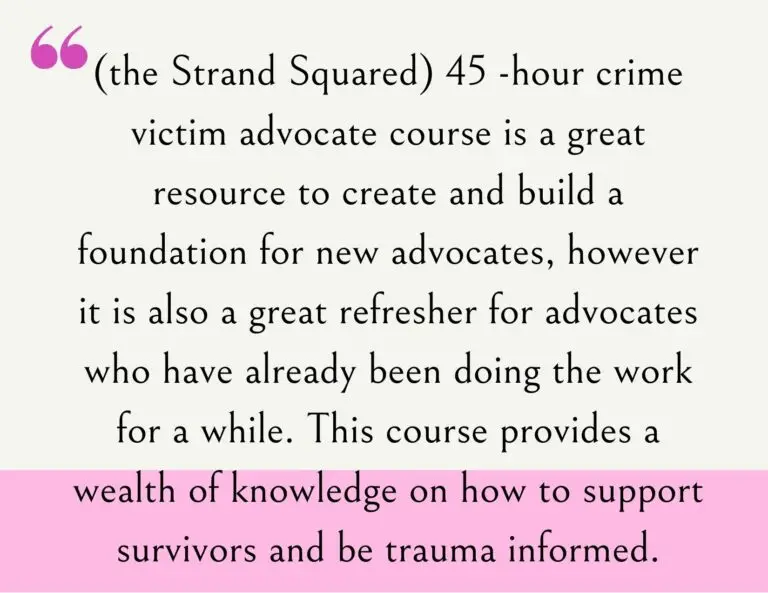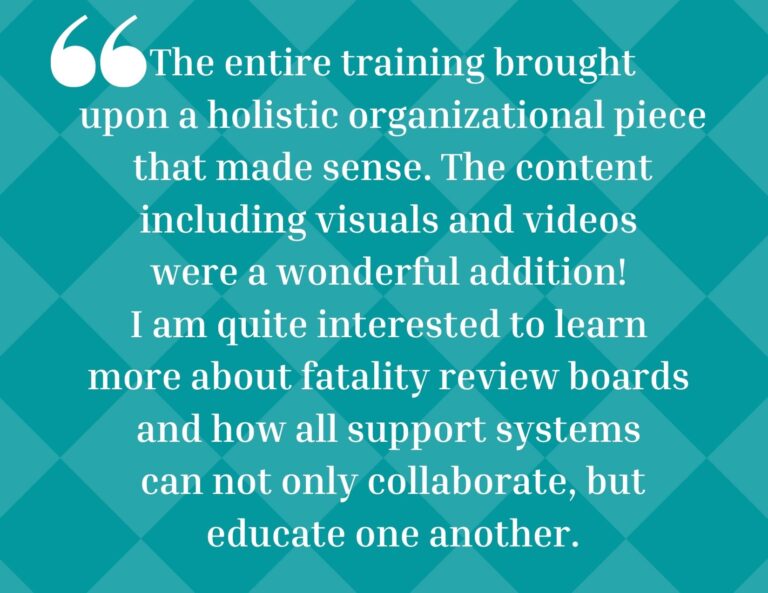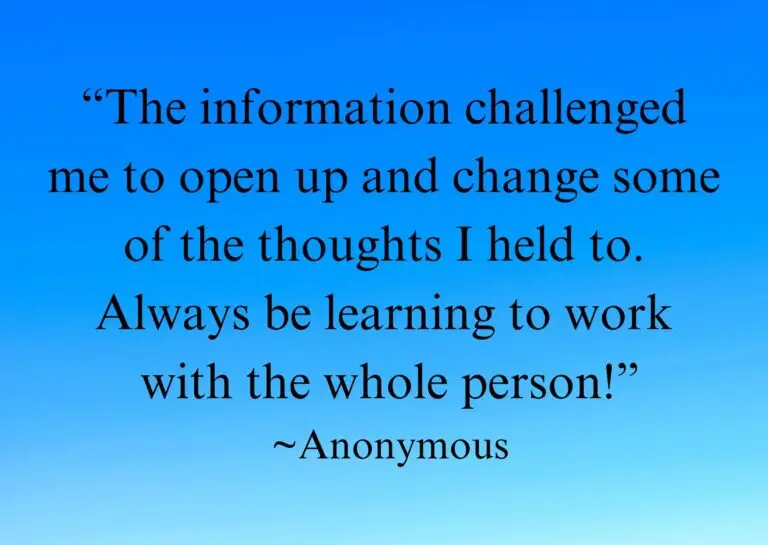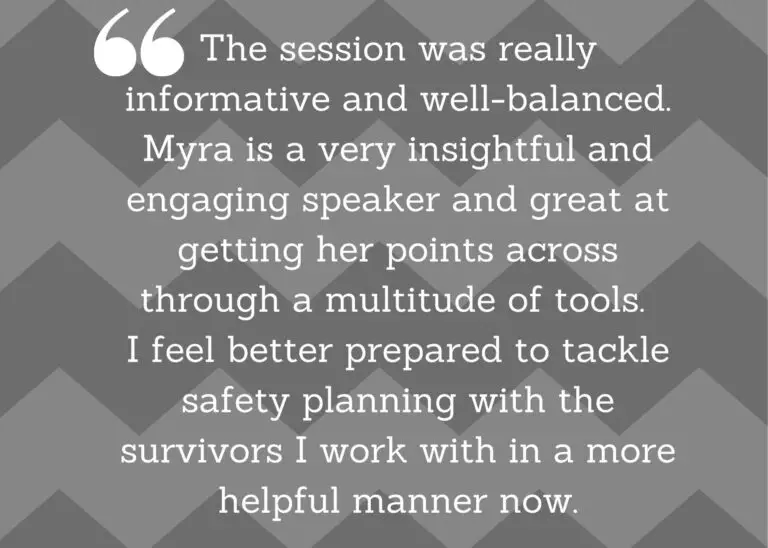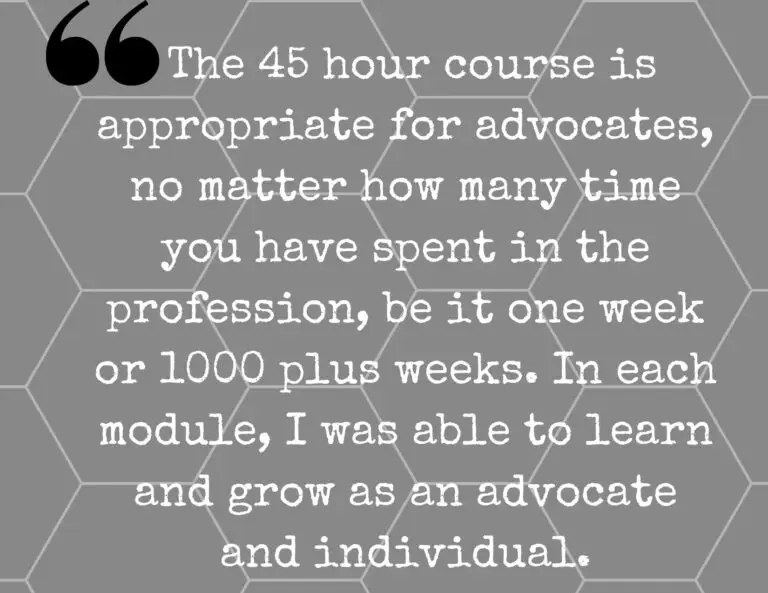About
Us
Our purpose.
Strand² provides human centric training and technical assistance designed to help professionals better serve people who have experienced trauma and/or victimization.
Our Mission: To pave a path from trauma to transcendence through training & technical assistance
We Envision: A global response to crisis and trauma that is hopeful, human, trauma informed and centered on transcendence.
Despite different disciplinary goals, we all share two common priorities when it comes to serving people who have been traumatized and/or victimized
In the aftermath of trauma and crime victimization, responders across all disciplines play a crucial role in shaping the recovery journey of individuals affected.
Prioritizing two primary goals: avoiding re-victimization and helping clients transcend trauma can significantly enhance the support provided. It can also help increase success rates for individual discipline goals and objectives.
By focusing on avoiding re-victimization, responders can create a safer environment that empowers survivors, fostering trust and encouraging open communication. When a person feels authentic human connection, their ability to participate in systems and processes that are difficult are increased.
Simultaneously, aiding clients in transcending trauma promotes resilience, helping them regain control over their lives and rebuild their identities. Research shows us that many victims achieve post traumatic growth, if that is even a slight possibility, it is an ethical obligation to make that a priority.
Together, these goals not only facilitate healing but also contribute to a more compassionate and effective response to trauma, ensuring that every individual has the opportunity to thrive beyond their experiences.

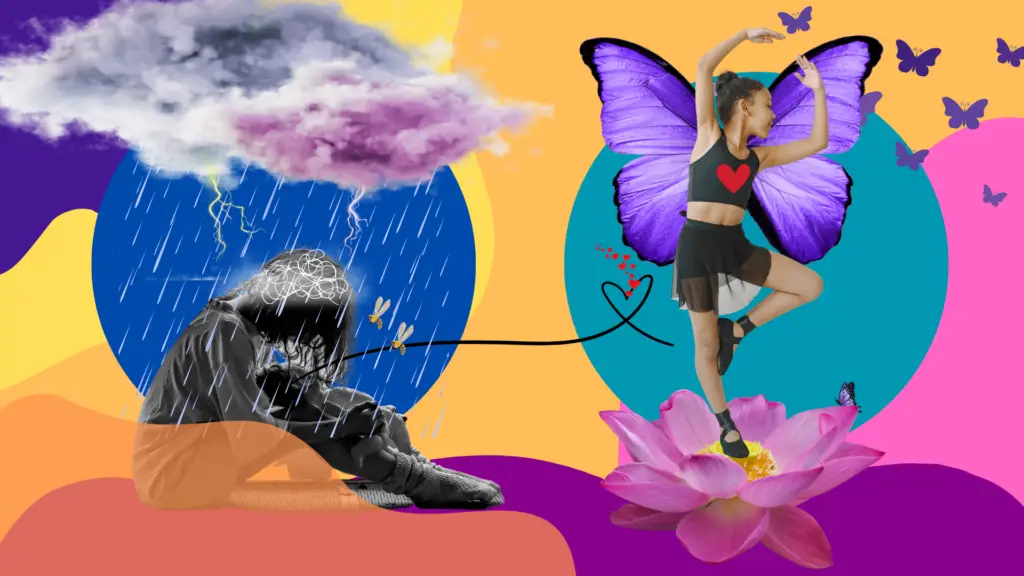
Avoid Re-Victimization
Help people transcend trauma
Values and guiding principles are essential when working through a human centric lens, with individuals who have experienced trauma and/or victimization. They provide a framework for decision making that is rooted in empathy, respect, and understanding. They can foster a safe environment where people feel heard and validated.
Additionally, these values encourage a holistic approach, recognizing the complex interplay of emotional, psychological, and physical aspects of trauma. Ultimately, grounding interactions in strong values ensures that the focus remains on the individual, promoting resilience and empowering them on their journey to recovery.
The cornerstones of a Human centric approach are safety, trust and compassion. We believe that the delivery of services should stand on a foundation of non-biased kindness, dignity and respect.
➣A Human-centric focus is a holistic wrap around approach, which is predicated upon the understanding that each individual defines their own path toward their goals (justice, self-direction, agency and, healing).
➣Being Human Centric includes a trauma informed perspective rooted in neuroscience that informs an understanding of what happens to a person when they experience complications of the brain and/or mind to include trauma, traumatic brain injury, mental health, cognitive or developmental disabilities and/or neurodivergence.
➣ Being Human Centric includes an understanding of how the body responds to trauma and how to help someone with self-regulation, healing and reaching post traumatic growth.
➣We recognize that individual human experience is complicated and that we have to respond through a lens that recognizes that complexity. We are not the sum of a single experience or a single day- but rather the culmination of all of our experiences and all of our days. Thus, being human-centric allows for whole human, the positive, the negative and the in-between. Thus, we believe that these values should be imparted to every person including clients served, their families, victims/ witnesses, suspects/offenders, volunteers, co-workers, leaders and partners.
➣We value the fullness of a human-being, believing the whole self encompasses the emotional, spiritual, cultural, physical and psychological. Thus, we promote an understanding that acknowledges the numerous ways individuals experience and express trauma as adaptive and natural.
➣We trust our own experience with people. Our modern world has increased our ability to community with has pros and cons. Sometimes people tend to communicate about other people in ways that may cause harm. We do not attach ourselves to conversations about other people and trust our own experience. We do not gossip or participate in rumor making.
➣We seek, to the greatest extent possible, to avoid re-victimization.
The Human-centric approach is rooted in a transparent intersectional approach that is collaborative, community oriented and rooted in evidence-informed innovation, while embracing a possibility for change. It relies upon healthy individuals and organizations who stand on a growing knowledge base and uphold voices of the people served in order to inform practice in a meaningful compassionate way.
The mosaic of people who bring a variety of backgrounds, cultures, experiences and perspectives are assets to the to be valued, heard and appreciated as they bring opportunity toward the positive evolution of our programs.
➣We appreciate the diversity of our community and strive to actively move past stereotypes and biases. We do not discriminate based on political affiliation, occupation, religion, marital status, sexual orientation, sex, gender identity, sexual history, nation status or origin, race, class, age, ability, mental health, documentation status, height, weight, primary language, legal history, education, HIV or other health status, etc. We seek to offer intersectional and actively inclusive services that move beyond a “single identity lens” (e.g. “through a lens of gender” or “through a lens of race”, etc.) as we must account for the whole person who actually embodies multiple identities simultaneously.
➣We recognize that the culmination of trauma may also be intersectional in that individuals may have histories that include multiple traumatic experiences (domestic violence, child abuse, sexual assault, etc.). Thus, we seek to understand the whole person through their complicated identities and their complicated culminated experiences.
➣We challenge ourselves to enthusiastically embrace the knowledge that differences between peoples are often constructed by history and societal structures.
➣We commit to acting respectfully on our evolving awareness without leading, intruding upon or defining the experiences of those in other social or cultural groups or of those we serve and with whom we work.
➣We recognize that an intersectional approach leverages the healing value of traditional cultural connections, honors and addresses historical and intergenerational trauma while striving to develop insight about differences among people, social groups and institutions.
➣on the scale of cultural humility, we recognize Cultural Safety as the best metric for sucess. Cultural Safety: “…is the positive recognition and celebration of cultures. It is more than just the absence of racism or discrimination and more than ‘cultural awareness’ and ‘cultural sensitivity’. It empowers people and enables them to contribute and feel safe to be themselves.” (SNAICC, 2021).
Cultural Safety is about the impact rather than the intent. The client is offered the power to to decide if they feel safe.
Our organizational operations and decisions are conducted with transparency and with the goal of building and maintaining trust among volunteers, staff, clients, leaders, partners and/or family members of those receiving services. We consistently uphold honesty, genuineness and accountability.
➣We embrace the idea that to be clear is to be kind. Thus, we use orienting person-first language to articulate expectations in order to facilitate a working culture that feels safe, supportive and respectful.
➣We strive to create an environment that fosters a free exchange of ideas. Thus, we welcome different perspectives, believing that variety in our experiences, backgrounds, approaches and opinions enrich us all and all that we do.
➣We agree to actively work toward the timely resolution of any conflict, misunderstanding or misperception, or we choose to let it go. Thus, we commit to being vulnerable and to processing through difficult interactions through sincere, open and clear communication.
➣We see providing and receiving feedback—both positive and constructive—as an invaluable practice. Thus, we take critique and recommendations toward change with vulnerability and honesty. Further, we actively seek and embrace auditing done by external bodies, in addition to auditing done internally, as means to create meaningful self-assessment and accountability for the services we provide.
➣We share information in order to facilitate collaboration and accountability and we make public our policies, protocols and practices.
On a daily basis, thousands of incidents of violence and/or trauma occur. There is more than enough work to go around. Thus, we are committed to work both cooperatively and collaboratively with each other, partner agencies, community members and the people that we serve in the effort to inspire community healing and accountability
➣We assume well about each other, focusing on the positive and putting our energies into constructive behavior. We challenge ourselves to act respectfully, thoughtfully and consciously.
➣We engage partners from both the public and private sectors with the conviction that addressing our issues and supporting people who have experienced traumatic events is a shared responsibility.
➣We welcome emulation that may have a positive impact in our community and help us to meet the overall goals of the criminal justice system.
➣We strive to create programs that are replicable and broadly applicable, openly sharing our knowledge and resources. While we also seek to be open minded about differing opinions in service delivery and in philosophy understanding that there is a need for diverse strategies in order to positively change the world.
➣We seek to nourish our constituents, our communities and ourselves. We acknowledge the importance of asking for and/or offering help. We offer compassion, empathy, and support to our partners because we understand vicarious trauma, demoralization and the heavy weight of this field.
➣We believe in setting clear, reasonable expectations and boundaries for ourselves and for others, recognizing this is necessary in order to do our work sustainably and collaboratively.
We question the ways we are accustomed to operating; continually striving to improve our services, our organization, and our movement through a lens that is responsive to trauma knowledge, psychology, social science, crossover research and other forms of knowledge that supports the transcendence and wellbeing of our clients and our systems.
➣We are committed to being guided by research and evaluation, adhering to and setting standards of excellence in our work. Thus, we actively integrate the best available research with client experiences, community input and professional knowledge to guide all programs and operations while remaining open to possibility, creative and innovative strategies and solutions.
➣We question the use of the term’s “expert” or “expertise” as those words imply that “all is known”, which is impossible.
➣We firmly stand on a growing knowledge base understanding that being life-long learners and constantly drawing from new knowledge will continue to feed the evolution of our practices and benefit the clients we serve.
➣We recognize the need to innovate and create, thus embracing promising practices. We believe that expansive, imaginative thinking and action will generate powerful and innovative solutions.
We value the time, space and freedom that inspire creativity to bloom.
➣We challenge ourselves individually and organizationally to look past constraints; striving to be our best through consciously taking risks and failing forward. In the spirit of innovation, we commit to pushing the boundaries of not just what is doable, but to what is possible.
➣We practice ongoing evaluation of programs with both quantitative and qualitative methods because it is essential that we cultivate continued and meaningful feedback that can be used to adjust, pivot and/or change.
Volunteer, staff and leadership health is paramount to the quality of their lives. We are committed to making professional health an ethical responsibility though the institutionalization of tangible strategies and policy change directed at professional health and wellness.
➣We believe that cultivating a healthy workforce will lead to an amelioration of secondary victimization which in turn will result in higher quality of services delivered by healthy, rested, experienced, well-educated and seasoned volunteers and staff.
➣ On an individual level, we strive to bring a sense of presence to our work rooted in self-awareness, health and balance. We are guided by balancing whether our actions are good for clients, good for staff, good for the organization, and good for the community. We aim to be healthy people in order to be able to provide healthy services.
➣On an organizational level, we recognize that an emphasis on professional health should be institutionalized and outlined in policies, protocols and practices.
➣We offer tangible strategies that support physical, emotional and mental health through offering quality volunteer and staff benefits. (i.e. competitive compensation, significant time-off and flexible practices, health care packages, mental health days, etc.)
➣We seek to maintain a healthy work culture by supporting and encouraging each other to regularly discussing self-care in weekly meetings, staff supervision sessions and within leadership. Further, our organization seeks to address and remedy a toxic environment (ie. gossiping, self-medication, mobbing, slut-shaming and victim-blaming etc.).
➣We honor space to fail or to make mistakes. We all make mistakes, while excellence is the standard and the goal, the environment needs to be forgiving and able to process through everyday mistakes without fear.
The client voice is integral to the organization and to service delivery as it a key vehicle for creating and maintaining effective services, building trust, establishing safety, and achieving goals.
➣We are led by the voices of the humans that we serve, centering our work around their experiences, recommendations and their perspectives while understanding that many, if not most, of the people we work with have experienced trauma and require gentle compassion filled interactions.
➣We create meaningful opportunities to generate actual client voice (i.e. inviting former clients to join advisory boards, asking them to review policy and protocol, using qualitative methods to gain deeper insight, etc.) and prioritize their needs and requests.
➣We recognize that true partnerships include balanced levels of power that exist across the organization from direct care staff to administrators to former clients. Further, we also recognize that healing happens in relationships that share decision making in a meaningful way.
➣We aim to strengthen choice options because every person’s experience is unique and requires an individualized approach.
➣We aim to build our approach upon what clients, staff, and communities have to offer, rather than responding to perceived deficits.
➣ We are Human-centric rather than agency or funding driven creating processes that create safety, trust and compassion rather that allowing the paperwork to drive the process of interaction.
➣ We are kind to the humans we work with. We treat them with dignity and respect. We don’t gossip about them or mob them or make them feel intimidated or bad.
There is enough violence to go around.
We are steadfast in our belief that the realms of trauma and victimization demand a compassionate and collective response. In a world where violence and trauma are all too prevalent, hoarding knowledge for personal gain is counter to our mission of healing and empowerment. Hence, we are committed to fostering a culture of openness and generosity.
➣Our ethos is built upon the conviction that the wisdom gleaned from addressing trauma and victimization should not be sequestered behind trademarks and proprietary barriers. Instead, we advocate for the free exchange of ideas, strategies, and educational resources that can amplify the impact of our collective efforts.
➣That said, we are not naïve and we recognize the litigious nature or our current society and know that sometimes it is necessary to create a trademark in order to retain the ability to stay in the field.
➣We actively seek collaboration with individuals, organizations, and communities that resonate with this ethos—those who understand that information, when shared freely, becomes a powerful catalyst for global improvement.
➣Our vision for a more compassionate world is rooted in the principle of shared progress. We believe that when we lift the veil of exclusivity from the tools and insights that facilitate healing, we enable a broader spectrum of humanity to find solace and strength.
➣Thus, while we respect intellectual property and the innovation it fosters, we prioritize partnerships with those who are equally committed to unbridled knowledge-sharing in the service of humanity’s wellbeing. It is through such partnerships that we can truly democratize the power to heal and to foster a climate of resilience and recovery.
➣While we are a “for profit company”, we are paid for our time, our research, our expertise, and the quality of our work product- not for the ideas, concepts, methods or strategies in which we deliver. Our hope is that those are used to help improve response.
We aim for find joy in our work.
We believe in expressing and celebrating joy, nurturing it in others and ourselves. We endeavor to approach our work from a place of joyfulness, laughter and hope, holding these qualities as the greatest possibilities in life.
We aim to approach our work without ego.
We believe that decision making should be human centric and client focused which inherently requires that we, as individuals, push our egos aside. Sometimes what is best for clients may not be what is best for us as individuals or fall within our organization’s priorities.
As humans, we are destined to make mistakes and there are areas that we can improve upon-and that is ok. If we stay mission/client focused, if we aim to be healthy, if we stand on a growing knowledge base, and we act with dignity, kindness, respect and compassion, we can improve our services and that is what is important.
We practice gratitude regularly.
We seek to continually expand our worldview by deepening our sense of gratitude. We recognize that being thankful is fundamental to health and well-being. We therefore commit to practicing gratitude, striving to convey appreciation of ourselves, each other, our communities and those we serve.
We recognize the importance of mindfulness.
We strive to bring a sense of presence to our work that is rooted in self-awareness, reflection and balance. We challenge ourselves to act respectfully, thoughtfully and consciously. In our interactions with one another and those we serve we commit to engaging with curiosity and deep listening, practicing loving kindness and intentionality.
We aim to forgive ourselves and everyone we work with as humans.
We are all only human and bound to make mistakes. We aim to be forgiving with each other and with ourselves.
We always aim for healing, resilience, and post-traumatic growth
We know that there is always a next step that holds a lot of possibility.
FEATURED TRAINING: Human Centric Interviewing (HCI)

🔏M & R Strand | Dec. 11, 2024
Human Centric Interviewing (HCI) is a transformative approach that redefines the interview process for trauma survivors by prioritizing their experiences and creating a healing-centered environment. Grounded in the neurobiology of trauma, intersectionality, and brain diversity, HCI equips professionals with essential skills to conduct compassionate interviews. Training clinics focus on understanding trauma’s impact on memory and emotional responses, developing empathetic interviewing techniques, and documenting narratives in a respectful manner. By fostering a strong connection with clients, HCI enhances information gathering while promoting equity and inclusivity. Ultimately, HCI represents a significant shift in trauma-informed practices, empowering individuals to share their stories and supporting their healing journeys.
